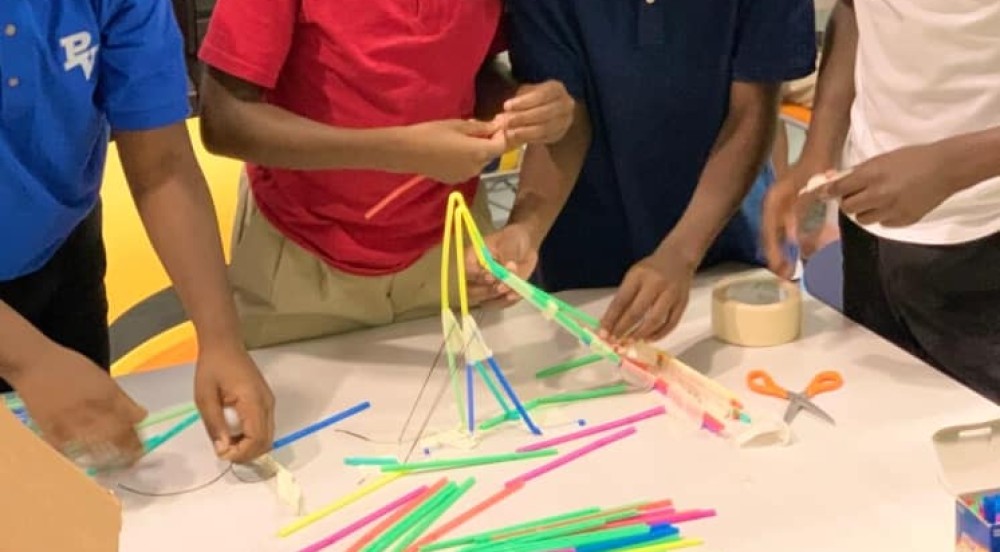Julius Bayone was a young boy growing up in Louisiana when he first learned how far educational resources could take him. It was a discovery that helped him complete his rudimentary years in the Alexandria public school system and then a secondary education at the University of Arkansas Pine Bluff. These days the 31-year-old is returning the favor he received as an impressionable, young student, and giving young Black boys the same opportunity his community gave to him.
“I went to my neighborhood community center because my parents could not afford tutors or additional resources,” says Bayone, the founder and executive director of Mission Transformation, a Houston non-profit focusing on engaging young Black boys in the areas of STEM. “That was the driving force for me to develop a holistic program that encompasses all things for young men of color in education, community, and the world.”
According to a U.S. Department of Education report, Black boys are more likely to attend schools without the adequate resources to educate them. And a 2019 study found that as recently as 2016, overwhelmingly white school districts received $23 billion more than predominantly nonwhite school districts in state and local funding. These are the gaps that Bayone attempts to address with Mission Transformation. Partnering with community organizations and tech companies like Apple and Microsoft has helped that dream come to life. Last week the former account executive kicked off a week-long coding camp with funding from Microsoft to educate a group of young boys aged 9-13.
“Working with Microsoft on a coding camp helped further our mission through consistent exposure for our young men of color,” Bayone tells EBONY. “It has helped them develop a passion and desire for all things tech. It has increased our capacity to focus on more STEM-related programs such as Artificial Intelligence, robotics, and coding at an advanced level.” Most importantly, Bayone shares, is the opportunity it has afforded more young men of color who need exposure to programs like this.
The Microsoft partnership emerged after mentees conveyed the kinds of programs they would be most interested in. The team at Mission Transformation had already begun identifying top fields with low percentages of people of color in the industry. What they discovered in their research is that only 14 percent of African Americans hold a position in the tech field. “So we reached out to Microsoft to identify what resources they could offer our mentees about a STEM camp and thus began our partnership,” says Bayone.
The CEO of Instein Tutors in Houston shares that one of the most rewarding parts of his position at Mission Transformation is seeing the young men in the program be inspired and develop a belief system that they are more than capable of being the next CEO, VP, director, or lead developer of companies where African Americans are not in prominent positions. “Our students are committed to constant improvement and supporting each other to be their very best in all endeavors,” Bayone asserts. “This group is driven by excellence! It is a beautiful sight to see.”
In the future, the founder has a “big audacious goal” of growing Mission Transformation to 1000 students with their technology center being the focal point. He also expects that the organization will have a regional footprint in the ARKLATEX (Arkansas, Louisiana, and Texas) region to expose more students to STEM. That starts with a plan to have the young boys of last week’s coding camp come to monthly coding camps starting this fall, providing the students consistent exposure.
“I hope students take away three things from their participation in Mission Transformation,” Bayone says, “Passion, empowerment, and inspiration to achieve greater, be greater, and do greater.”













